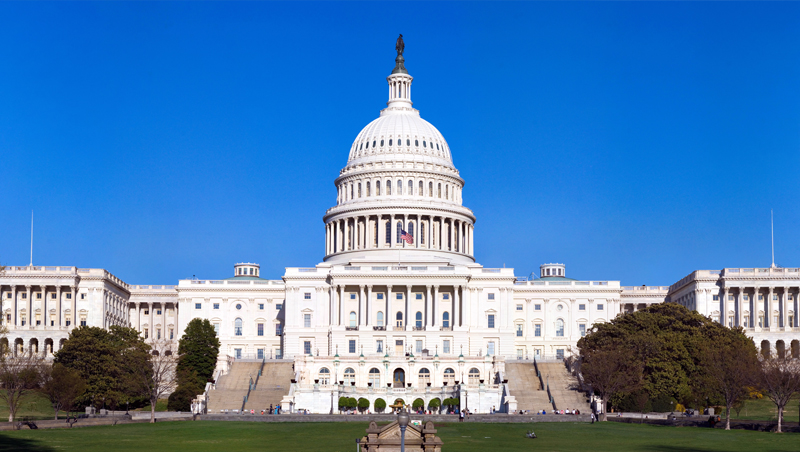There is a gap in the enactment of federal legislation which sufficiently recognizes the
extent of nurse practitioners across all states in the United States. Apart from handful areas
such as Medicare and Medicaid provision, the federal enactments do not take keen
consideration of the critical health care provided by nurse practitioners.

As a result of a pronounced and long-standing conflict between medical organizations and the nursing
bodies, the regulation of the practice has been over the years left to state legislation.
Since the nursing practice began to make a positive impact in Arizona State University in 1965 on low-
income populations that previously only depended on the Federally Qualified Health Centers,
states increased their laws and regulations on the running of the Nurse-Managed Health
Centers (Cannon, S. and Boswell, C., 2011).
The state legislature thus determines through statute what bodies are to lay down the
rules meant to impact on the nursing practice, and some of these bodies are autonomously
governed. In others, a problem arises where though a regulatory body exists which comprises
the nursing practitioners themselves, medical bodies impose their own rules on the liaison
between physicians and the nurse practitioners.
An example is the state of Georgia, in which there is a nursing regulatory agency with the mandate to impose conditions on advanced
practice, but then there is a separate set of rules from the medical examination body which
prescribes the nature of relationship that physicians ought to have with the nurse practitioners
(Ga. Code Ann. § 43-26-5(11), 2007).
Friction may result in such instances, and there is a need for legislative reform to iron
out the differences. In other words, there is no concise set of laws that form the general
legislative policy to recognize and govern the nursing practice. The policymakers are hesitant
to implement policies that separate nursing practitioners completely from physicians,
LEGISLATIVE POLICY IN THE NURSING PRACTICE 3
probably on the grounds that doing so might reduce or even phase out the market-based
healthcare provision that is associated with medical practice.
The negative effects that result from restrictive policies leading to such a deficiency
can be explained in a number of ways. One consequence, which is evident in the current
situation, of disregarding the impact of nurse practitioners is the absence of adequate
financial assistance to the cause.
For example, Nurse-Managed Health Centers despite providing critically acclaimed safety services in their respective communities remain
unassisted in terms of financial support by the government (National Nursing Centers
Consortium). They therefore have to depend on funds from the private sector and self-
initiated donation projects to run the centers. This is despite their number increasing
significantly over the years, to about 250 centers across the nation.

The result of insufficient funding is that the nursing practitioners may not offer their best services as much as they have
the potential to do so. The domino effect is that the patients lose out on having the best
healthcare provision they deserve. This is keeping in mind that a huge number of people opt
for the nurse-based centers for health care (Roux, G., M. and Halstead, J., A., 2009).
Another harmful effect of policies that restrict nurse practitioners is that it limits their
level of performance. State regulations that make practitioners operate only under the
inspection and directives of physicians, especially advanced nurse practitioners, are likely to
de-motivate them, since such practitioners are well qualified to provide holistic healthcare to
the satisfaction of the patients.
A number of research studies, including federally-supported studies, have concluded that the quality of primary healthcare provision in the nurse-managed
method was no different in many ways, to that of other similar providers (Hansen-Turton,
2007).
LEGISLATIVE POLICY IN THE NURSING PRACTICE 4
Concerning the cost effectiveness of the current policy, a survey carried out in 2009
found that nurse-based healthcare provided holistic, high-quality and minimal cost services to
patients as compared to the expensive services provided by physicians (Elber, E et al, 2009).
According to the survey, it would be a lot less costly to use the nurse- managed centers than
other sources in the long run, since the services provided here are affordable and are of the
best qualities, supported by patient satisfaction.
Without any big difference in the delivery of healthcare, a policy which makes the nursing practitioners subject to inspection and
mandatory collaboration with physicians only helps to distance them from their much needed
services to the patients. It was certified that in 2009, the cost of nurse practice services on
healthcare averaged 20% cheaper than that of physicians in the United States (Elber, E et al,
2009).
My recommendation is that a policy which makes nurse practitioners independent
from control by medical organizations should be developed into law. Such a policy should
accommodate the full participation of nursing practitioners in the legislative agenda so that it
incorporates all their needs.
A good model should take into account their contribution in the healthcare provision while they are in collaboration with physicians, the advanced
practitioners’ qualifications to serve independently, the role of Nurse-Managed Health
Centers and incorporate a funding agency such as is the case for the Federally Qualified
Health Centers under the Health Center Consolidation Act (Gantz, N., R. (2009).
The policy should officially acknowledge the significance of nurse practitioners in the nation by
disclosing the relevant studies that support the contribution of the practice across the nation
such as that shown in the American Medical Association in 2000 after a study conducted by
both nurse practitioners and physicians at Columbia University confirming the nurse
practice’s effectiveness (Mundinger, 2000).
LEGISLATIVE POLICY IN THE NURSING PRACTICE 5
‘Your name and address’
To the ‘local legislator’
Address.
Dear Sir/ Madam,
Re: POLICY REVISION ON THE NURSING PRACTICE IN ‘THE STATE’
Following a careful consideration of the state legislative policy with respect to the nursing
practice, I hereby request your consideration for a revision of the same.
The current legislative policy insufficiently accommodates the high-quality, cost-effective
and holistic healthcare that nurse practitioners across the nation have demonstrated since the
inception of the practice over forty years ago. It insists on placing nurse practitioners under
the armpits of the physicians, despite evidence that they provide the same, probably even
better healthcare to patients.
My recommendations therefore are that we incorporate a policy which makes nurse
practitioners fairly independent from the regulations of medical organizations, financially
supports the Nurse-Managed Health Centers and recognizes advanced nurse practitioners as
having full qualifications to provide efficient primary healthcare services.
Yours sincerely,
Signature
LEGISLATIVE POLICY IN THE NURSING PRACTICE 6
Reference list
Cannon, S. and Boswell, C. (2011). Evidence-Based Teaching in Nursing: A Foundation for
Educators. : Jones & Bartlett Publishers.
Roux, G., M. and Halstead, J., A. (2009). Issues and trends in nursing: essential knowledge
for today and tomorrow. : Jones & Bartlett Publishers.
Gantz, N., R. (2009). 101 Global Leadership Lessons for Nurses: Shared Legacies
from Leaders and Their Mentors. Indianapolis: Sigma Theta Tau.
Elber, E et al (2009). Controlling Health Care Spending In Massachusetts: An analysis of
Options. : RAND Health
Mundinger, M. et al. (2000). Primary Care Outcomesin Patients Treated by Nurse
Practitioners or Physicians. Journal of the American Medical Association 283(1) p59.
Tine Hansen-Turton, et. al., (2007). Convenient Care Clinics: the Future of Accessible Health
Care. Disease Management 10(2) pp 61, 68.
National Nursing Centers Consortium: The Nurse-Managed Health Clinic Investment:
Retrieved on 13 th February 2012 from http://www.nncc.us/policy/NMHCAct.pdf